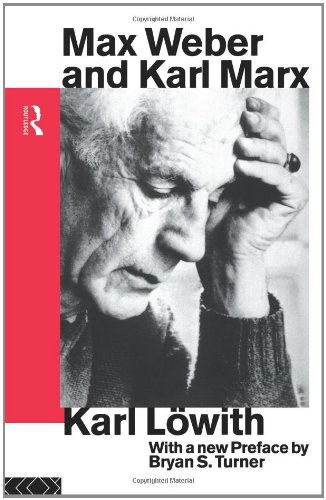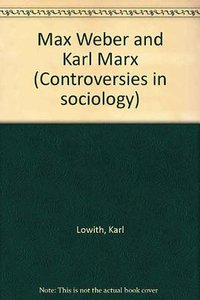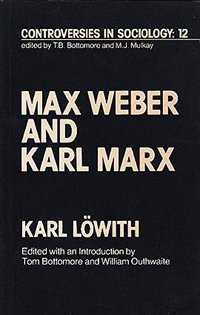Max Weber and Karl Marx
豆瓣
With a new Preface by Bryan S.Turner
Karl Lowith / Bryan S. Turner 译者: Hans Fantel
简介
Karl Lowith was the son of a Munich artist and studied philosophy and biology in Munich, Freiburg and Marburg. He began his teaching career in 1928 as Privatdozent in Marburg, working under Heidegger, but was forced to leave in 1934. After two years in Rome he held a chair at Tohku University, Sendai, Japan from 1936-1941. In 1941 he moved to the Theological Seminary at Hartford, Connecticut and, in 1949, to the New School for Social Research, New York. In 1952 he returned to Germany as Professor of Philosophy at the University of Heidelberg where he remained until his retirement. He died in 1973. His best known work, From Hegel to Nietzsche , was published in Zurich in 1941 and in English translation in 1964. In Max Weber and Karl Marx Lowith, whose philosophical approach was a product of Heidegger's existentialism, showed how there was a convergence towards a common 'life philosophy'. Lowith's analysis of the philosophical anthropology of these two major social scientists shows that much of the ideological dispute between Marxism and Sociology has been the result of mutual misunderstanding.
contents
Preface to the new edition Bryan S.Turner 1
Note on the translation 33
Introduction to the translation 34
MAX WEBER AND KARL MARX
1 Introduction 42
Statement of the problem 42
General characterisation of Weber and Marx 44
2 Weber’s interpretation of the bourgeois-capitalist
world in terms of ‘rationalisation’ 51
The starting point of Weber’s research 51
Rationality as the problematic expression of the modern world 62
Rationality as the capacity for individual responsibility
amidst universal dependency 72
3 Marx’s interpretation of the bourgeois-capitalist world
in terms of human ‘self-alienation’ 89
The historical development of the concept from Hegel through
Feuerbach to Marx 89
The economic expression of human self-alienation in the
commodity 96
The political expression of human self-alienation in bourgeois
society 102
The direct social expression of human self-alienation in the
proletariat 109
4 Weber’s critique of the materialist conception
of history 119
Weber’s indirect critique of Marx in the dispute with
Stammler 120
Weber’s critique of Marx in the sociology of religion 121
Bibliography 126
Index 129



